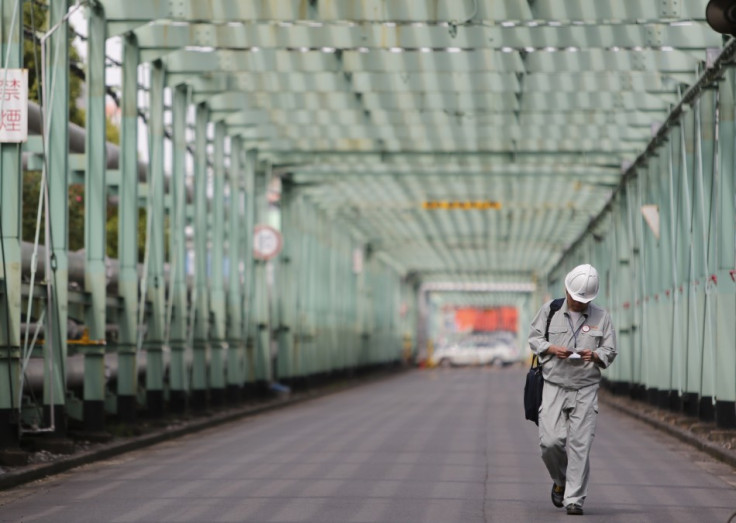Japan Industrial Production Falls for First Time in Five Months

Japan's industrial production declined for the first time in five months and consumer spending also fell, underscoring the challenge the country faces in the recovery of its economy.
In June, industrial production declined 3.3% from the previous month, according to the Ministry of Economy, Trade and Industry. The decline compares to a revised 1.9% gain in May and analysts' expectations for a decline by 1.8%.
A survey of manufacturers conducted by the ministry in May hinted a 2.4% decline in output in June.
The fall in factory output was primarily attributed to a decline in production of transport equipment, including autos, followed by eletronics and machinery.
For July, the manufacturers expect a rapid gain of 6.5%, up from 3.3% projected in last month's survey, backed by exports and private consumption. The ministry also said that output would decline 0.9% in August.
While the monthly decline in factory output indicates challenging conditions in the economy, analysts were of the view that the fall is a temporary phenomenon and predicted that production would jump in the coming months.
Furthermore, separate official data showed that Japan's unemployment rate fell to 3.9% in June, the lowest point in more than four years.
Household Spending
Japan's household spending fell 0.4% from a year earlier, while analysts had expected growth of 1.0%.
The country has been trying to boost domestic consumption in an attempt to revive its stagnant economy. The government led by Shinzo Abe and the Bank of Japan has unveiled a series of aggressive measures to boost domestic demand, which has suffered from years of deflation or falling prices.
In a deflationary situation, consumers tend to postpone big purchases in the hope of a better deal. Therefore, ending the deflationary cycle is seen to be the key to reviving the world's third-largest economy.
Earlier this year, the central bank doubled its inflation target to 2% in an attempt to boost consumer prices and spending. The bank targets to reach the goal within a two-year period.
On Monday, the BoJ governor Haruhiko Kuroda confirmed that the country's planned increase in sales tax rate would not dent its economic recovery.
In the first step, Japan plans to raise sales tax rates to 8% from the current 5% in April 2014 in order to stabilize long-term yields of government bonds and repair public finances. Subsequently, the rate will be raised to 10% in 2015.
However, Abe is seriously rethinking the plan due to concerns that the move will rattle financial markets and affect investor confidence.
© Copyright IBTimes 2025. All rights reserved.






















